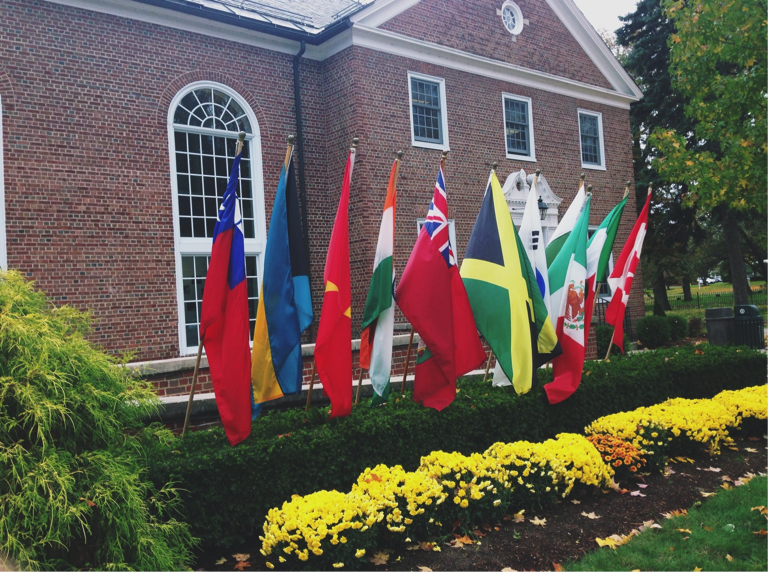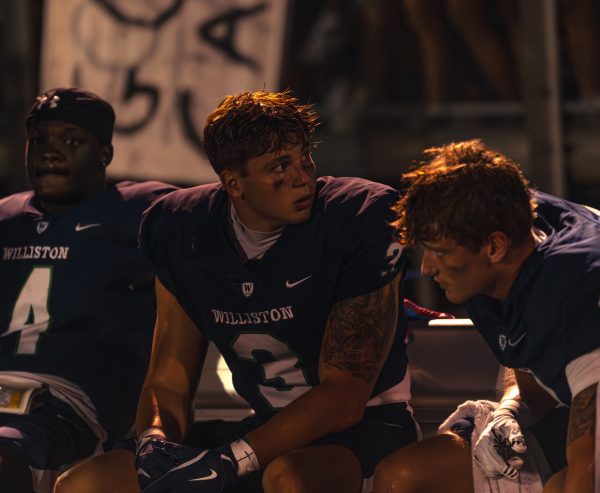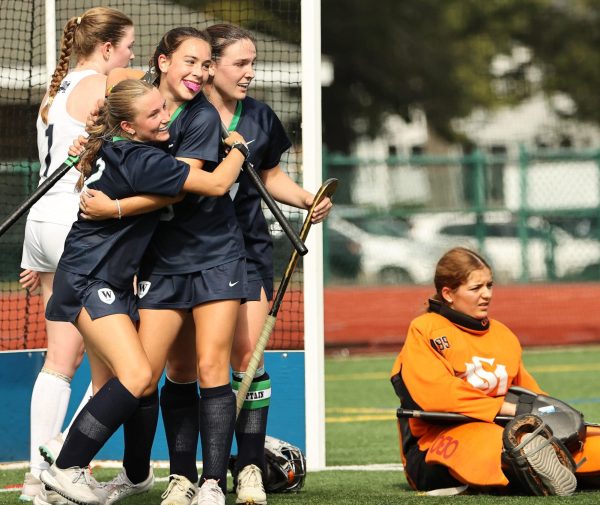The ‘Double Life’ Some Students Face Moving from Major Cities to Small Town Massachusetts
Flags outside the Reed Campus Center representing the international students.
While Williston represents students from 30 different countries, and is a home-away-from-home for much of the year, many people don’t realize the drastic change in lifestyle international students face on campus compared with back home.
Williston’s international students live double lives in a lot of ways; many students, because of the drastically different cultures and expectations, change the way they behave and dress depending on where they are.
Dire Adeosun, a first-year sophomore from Nigeria, finds Williston to be very different from her home city of Lagos.
“I feel like every aspect of life is really different from Nigeria to Williston. Nigeria’s weather is hot and humid year-round which is different compared to Williston where it is always so cold,” she described.
Not only is the weather different, but the food and culture vary.
“Food is also very different, in Nigeria I usually eat rice, broth, chicken or plantains,” she said. “The people and how they act is also very different.”
Dire said another notable difference from home and campus is how she interacts with adults.
“When I’m home I have to be more respectful because my mom has certain standards on how to act and behave around others. In Nigeria we have to be way more respectful to adults and elders compared to Williston,” she said. “There are also different ways to greet adults in Nigeria and my behavior changes when I’m in Nigeria because my mom is around me.”
Dire emphasizes how the school system in Nigeria emphasizes more on the teacher-student relationship.
“I haven’t gone to school in Nigeria in a very long time but one thing I remember is kids being way more respectful and obedient to their teachers.”
A third-year junior from Hong Kong, Jeremie Ng explained just how different her home city is from the small town of Easthampton.
“In Hong Kong, I live in the city and it’s really different compared to Easthampton. The view in the city is so pretty; it’s a fast-paced environment,” she said. “There’s a lot of quick and easy transportation, a lot of shopping, and fine dining, and everyone here is also very boujee.”
She noted the difference between being in a town compared to a city.
“It’s a very different lifestyle because life is very slow-paced in Easthampton and I prefer living in a fast-paced environment,” she said. “Getting to places [in Easthampton] is also very difficult and the city [Hong Kong] just fits my lifestyle and my vibe. Being in the city also makes me very happy.”
While Hong Kong’s fast-paced environment suits Jeremie more, she acknowledges the modifications to the way she dresses.
“I can’t wear everything I own because in Hong Kong people stare; they are less accepting, while in America I can wear whatever I want,” she said. “In Hong Kong, I can’t wear tops that reveal too much because people stare and it’s just awkward.”
Vasu Jain, a third-year junior from Tokyo, Japan, said living in the “high tech” city is more convenient and easier than living in Easthampton. He further explained the increased accessibility of stores and transportation.
“Every block has a convenient store, and all basic necessities are within walking distance,” he said. “Trains and metros are used everywhere, they are probably used more than cars, and it’s our most used way of transportation, which is super easy to use and get places.”
Like Dire, Vasu noticed the different mannerisms and behaviors between life in Tokyo and here on campus.
“Japanese people are very respectful and are perfectionists,” he said. “For example, I see people bowing all the time, it’s a sign of respect. It’s different because here in America there’s not that much respect and in Japan, people are very respectful and polite to everyone and present themselves to people kindly.”
Harini Murugan, a third-year junior from Saudi Arabia, noted the strict clothing restrictions she has to follow at home.
“When I go back home it is so different,” Harini said. “When I leave my house, I need to be mindful of what I’m wearing to make sure I don’t disrespect the culture. When I leave my gated compound, I need to wear an abaya which is very different compared to what I wear here.” The abaya is a long piece of clothing that covers the whole body from neck to wrists and down to the feet.
At Williston, Harini of course has more freedom in what she wears.
“When I’m here [at Williston], I can just leave my dorm in shorts and a shirt.”
The gyms back home, segregated by gender, are another striking example of how life in Saudi Arabia differs from life at Williston.
“When I’m back home the gyms are separated by gender and we have times for male and female hours,” she said. “When I go to the gym, I usually don’t see guys, and it’s weird because when I’m here at Williston and I go to the gym there are guys sometimes who lift at the same time I do.”












